Submission Deadline
28 February 2026
Judging
Date
24 & 25 March 2026
Winners Announcement
22 April 2026
28 February 2026
24 & 25 March 2026
22 April 2026
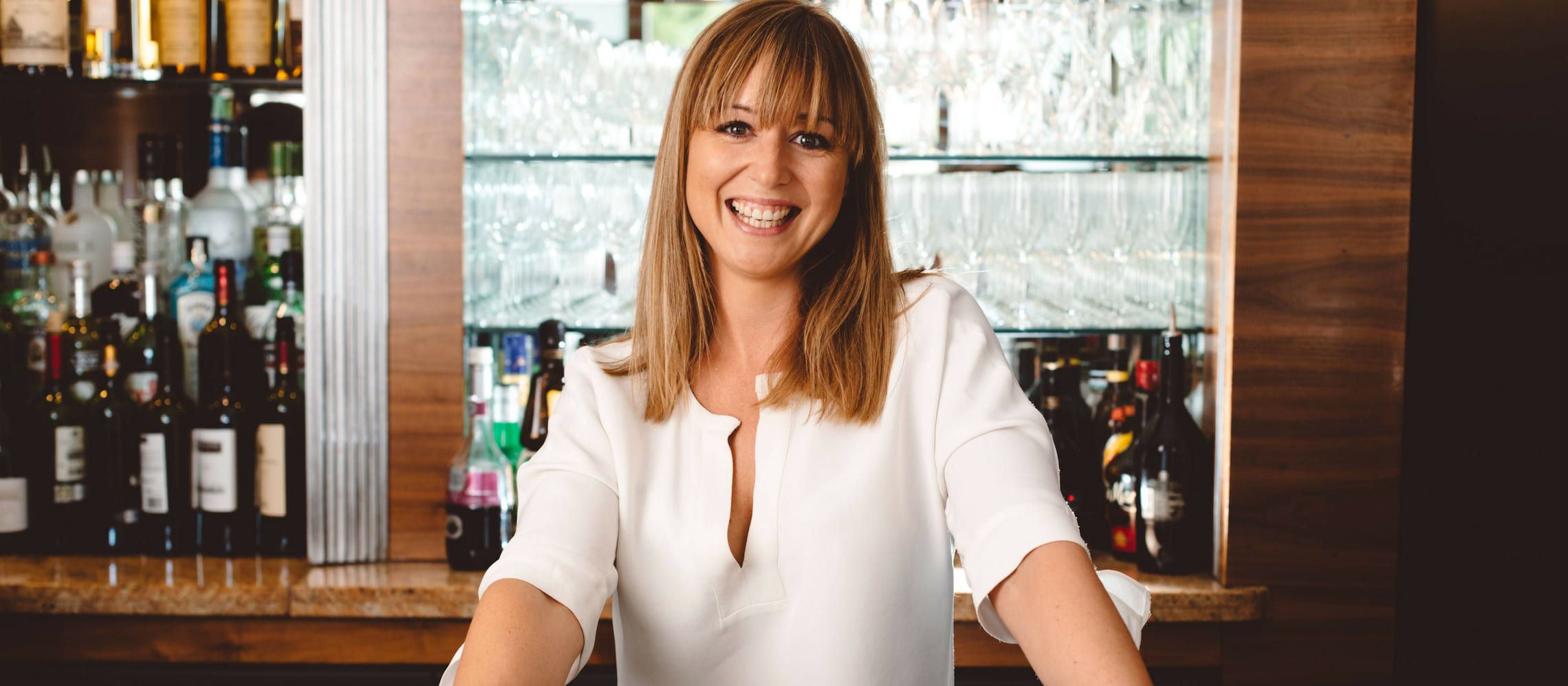
Love Drinks has established itself as one of the most innovative premium drinks distributors in the UK. The journey began 11 years ago just as the banks were descending into their worst crisis since the 1930s. Setting up a premium drinks distribution business did not look like the wisest business move. However, Kirsty Loveday is still very much challenging the industry to sell better spirits and in better ways.
CEO and self-proclaimed CHO (Chief Happiness Officer), Kirsty has been honoured for her innovation at the highest level receiving a British Empire Medal (B.E.M.) and Outstanding Entrepreneur of the Year at the Womens 1st Shine Awards in 2016.
She spent some time with me describing this inspirational journey.
This year we celebrated our 11th anniversary born from a desire to premiumise and be an alternative. The market was very different then to what it is today.
Our original ethos was about the quality liquid that had a story, history and heritage. One of the first brands into the portfolio was The Bitter Truth. Historically, the market was limited in this category, pretty much Angostura Bitters and not much else. We saw ourselves bringing innovation to the market and due to our close relationship with the on-trade, it is easy for us to spot both the gaps and trends.
I found that there was little structure in the industry eleven years ago and this was also something that frustrated me. Professionalism, looking smart and accountability is important in any domain. These are just some of the core values that we hold very strongly and something that has helped us develop as a recognised player in our industry, and, a place where craft products are taken extremely seriously.
For example, the evolution of the bartender: manicured, moustached, wearing his or her finery and proud of this stylish career path.
Love Drinks is based in Clapham, currently has 11 brands, a team of 14, and has a bright future ahead. Our focal points, or rather, the philosophy of the company is professionalism, authenticity, quality, creativity and nurturing relationships within the business and in the trade.
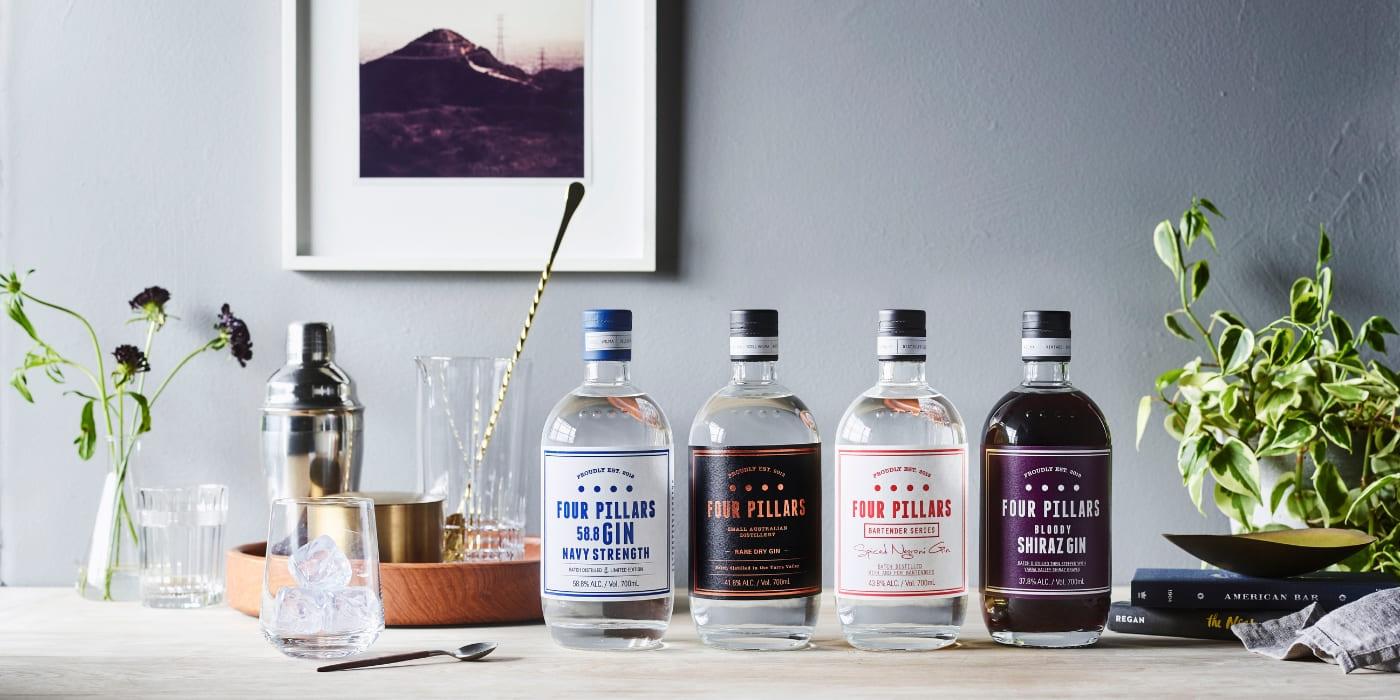
The Love Drinks portfolio is predominately spirits, one craft beer and a newly launched fantastic range of mixers called Artisan.
We are first and foremost an on-trade focussed business model. This is our heartland, so our team are exceptionally highly trained to present to that target market.
Working alongside smaller brands with smaller budgets means that we rely on the quality of what is in the bottle and bartender recommendations. We support partners who are looking to premiumise and challenge the industry to do better, especially those who have longer-term objectives like us. For example, we are looking for customers who want to make better drinks and search out distinguished brands like Mr Black in an Espresso Martini and can respect the premium price point.
Retail has become increasingly important over the years as more people are drinking at home or entertaining guests and therefore making discerning, premium alcoholic purchases. We focus on more specialist grocers such as Waitrose and Marks and Spencer but also recognise the importance of e-commerce. We ensure that we have the right assets to support that channel too - lots of engaging pictures and videos to entice the home consumer via social media functions.
Saturated, noisy, dynamic. There is a lot of uncertainty surrounding Brexit, which affects the craft drinks market in particular - whether they originate from the UK or abroad. Producers look to the UK as a shop window for the world, which is valid, however the expectation of elevated sales volume from brand owners can be unrealistic due to the relentless climate of competition.
Everyone is talking about the 1 billion bottles of gin sold here, but the number of gin brands is extraordinary. So I guess that I am just concerned about the sustainability of those brands moving forward.
Love Drinks has two focussed gin brands: Four Pillars from Australia and Herno Gin from Sweden. Both are the highest awarded gins in their hemispheres. Each have a clear identity, are well resourced and hold a vision for the future. Brands who invest in long-term stable growth and strategy will determine their longevity in the market.
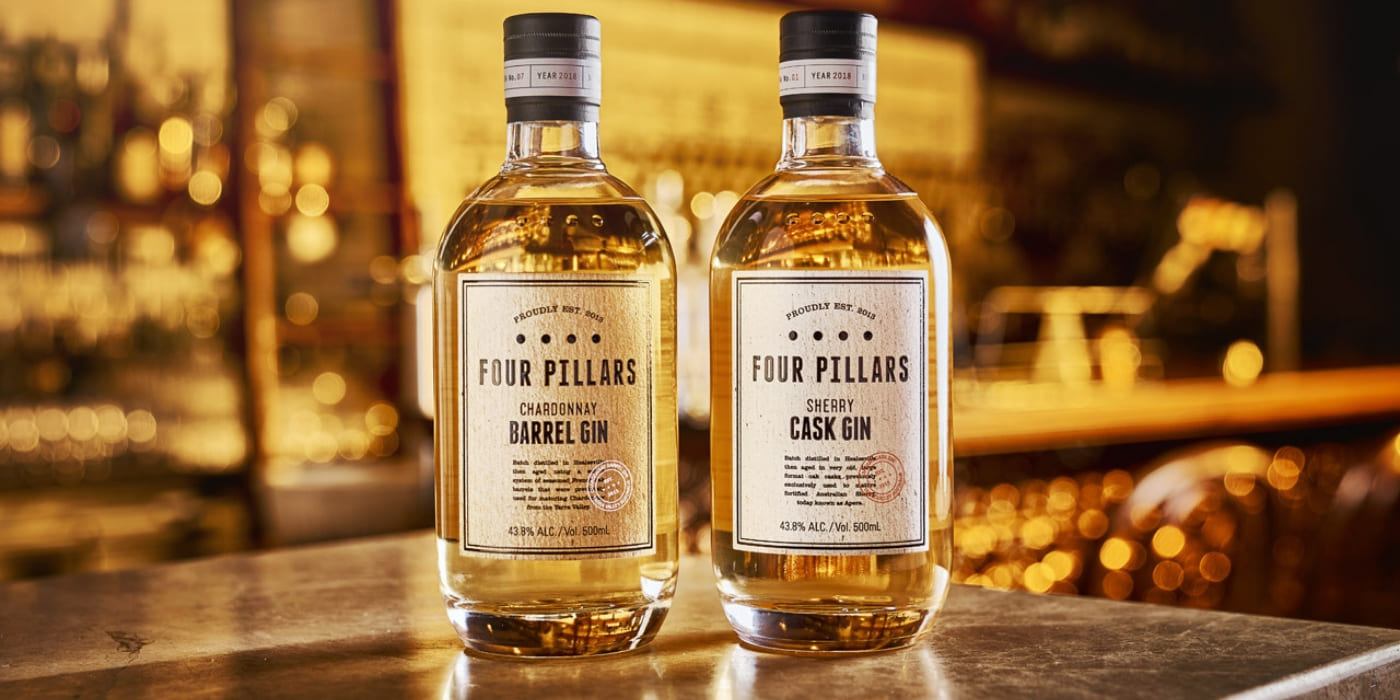
We pursue the next quality “big thing” for the connoisseur or challenge our brand owners to launch novel but equally premium SKUs and limited releases. We want stability in the portfolio, not a revolving door. Maintaining a small portfolio is important to us but we also recognize the thirst for variety (forgive the pun) and “new,” exciting variants for the trade. Love Drinks is a long-term brand builder so innovative product development is crucial.
We are always looking at new and interesting categories, investing in what we think are going to be big brands over the next 2-3 years.
Mr Black is a prime example of this. Five years ago, when we launched this brand there was only Tia Maria and Kahlua, and we were literally twice the price, but now there are many super premium coffee liqueurs. We have certainly paved the way and developed this category in the UK.
I do not feel that they will be as powerful as they have been. There are lots of consumers who value independent traders and I do feel the tables are turning back in time slightly. Regardless, convenience is paramount and the variety now available in the bigger stores is much better than what it was. Gin aisles regularly boast over 20 variants. In 2007 there were only 2! None of our brands are commodity brands and as such, supermarkets have never been massively key for us – save the mainstream big 4 grocers.
Consumers desire and benefit from an interactive experience, so our focus is via specialist retailers where we can influence via tastings and showcases.
Consumers are hungry for anything new. Five years ago we would have one gin at home, but now we have repertoire of four to seven! So people are buying as a centrepiece for a dinner party. Flavoured gins are going down quite well due to a sweeter palate.
The buying power has shifted towards the consumer because of the availability of data, social media and the internet. So people are relating more quickly to new products. Five years ago it was much more of a trade discussion.
As far as liqueurs go, Mr Black is a really good example of new categories emerging – the whole coffee culture rising to the surface.
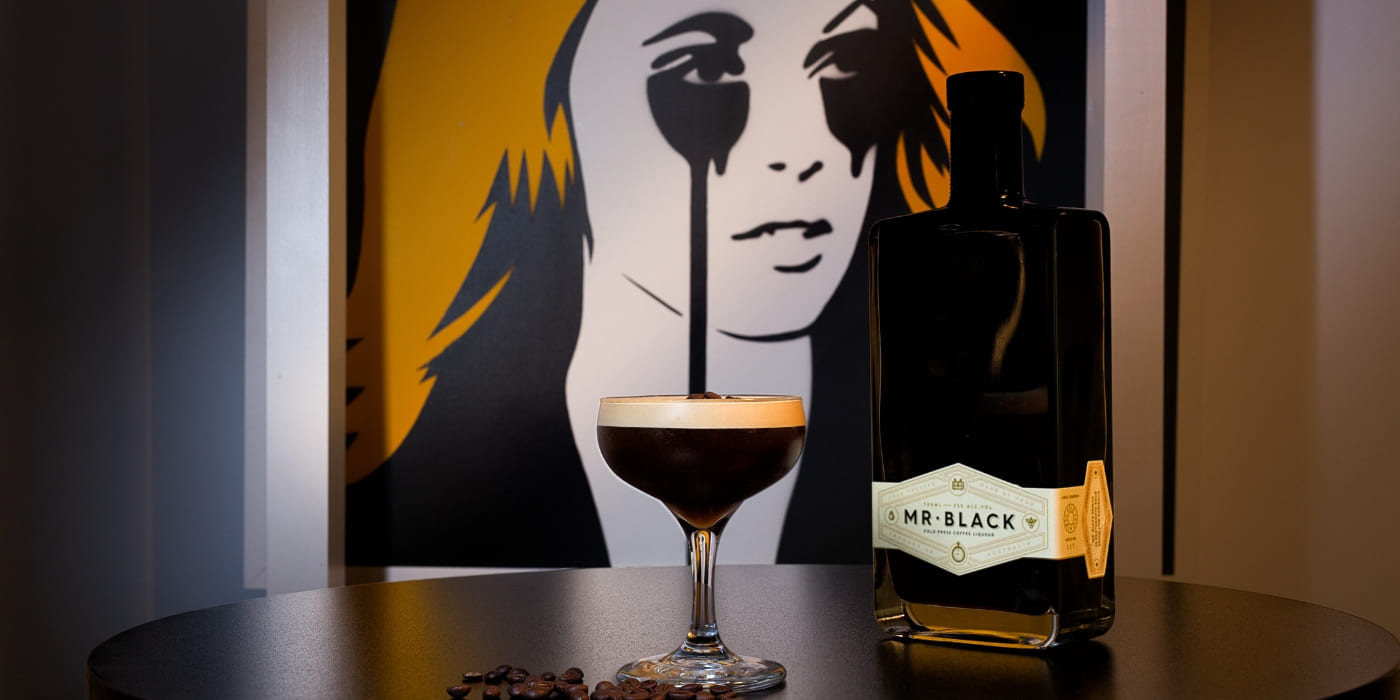
Rum continues to do well. It has a taste profile that is more appealing to the trade but the UK consumer is becoming much more accustomed and adventurous towards it.
Bartenders have such sophisticated palates, which also means that in the trade we can sometimes become numb to all the different flavours, searching out stranger and more unique tastes. We must remember that the average consumer is not as exposed to so many different flavours. We assist them on this journey with bars making accessible cocktails rather than intimidating creations that are hard to order and drink!
The industry is constantly talking about Mezcal being the next big thing but I just don’t think that it commands the right flavour profile to appeal to an audience much wider than the trade.
In addition, premium mixers have also been successful. Fevertree have done such an amazing job hence why we have launched the Artisan: a mixer brand made by a mixologist and an artist. Kombucha, fermented teas, kefirs and the whole non-alcoholic sector shows real potential overall.
Absolutely - it should be a priority but go into it with your eyes open and do your research. Brexit is accompanied by instability, and the market is so crowded it’s like a bun fight for volume. Also, let’s be honest, gin is getting most of that share right now. However, the quality of the UK consumer and trade trends are important. The UK on trade continues to deliver unique experiences to consumers. Bartenders from across the world are driven to this market to witness innovation.
The homegrown, “Lets buy British” attitude has opened up so many opportunities to UK producers. However, amongst the clutter, there are lots of other good quality categories that have room for development too.
Finding the right distributor is essential. It is not about launching a craft brand with high volume aspirations. Placing the brand in the right on trade accounts and specialist retailers can take time.
Seek out distributors and customers who match your values. Some are family owned, some are sales motivated and others marketing focussed, so it is about a long-term strategy for the brand in the UK market.
For Love Drinks, we collaborate with brands who have passionate personalities behind them, alongside the knowledge, determination and patience to attain shared objectives. We would never launch a brand, place it on promotion in a supermarket shelf and say ‘job done’ because that won’t work for long-term success. Brand building takes time and a lot of love.
Social media has become incredibly important over the last three years and having brand owners who can invest in this area helps us to do our job more effectively. Consumers want to experience the brand from the horse’s mouth. We are reliant on our suppliers translating their social media asset to the UK market, or having the resources to allow us to do that.
Four Pillars Gin, craft distillers in Melbourne, have been successful in supporting our sales drive and making consumers feel part of the family at a really high, intimate level through social media.
We are very aware of our environmental footprint here at Love Drinks and we encourage the same of our brand partners. Each brand that we work with are responsible in their own way.
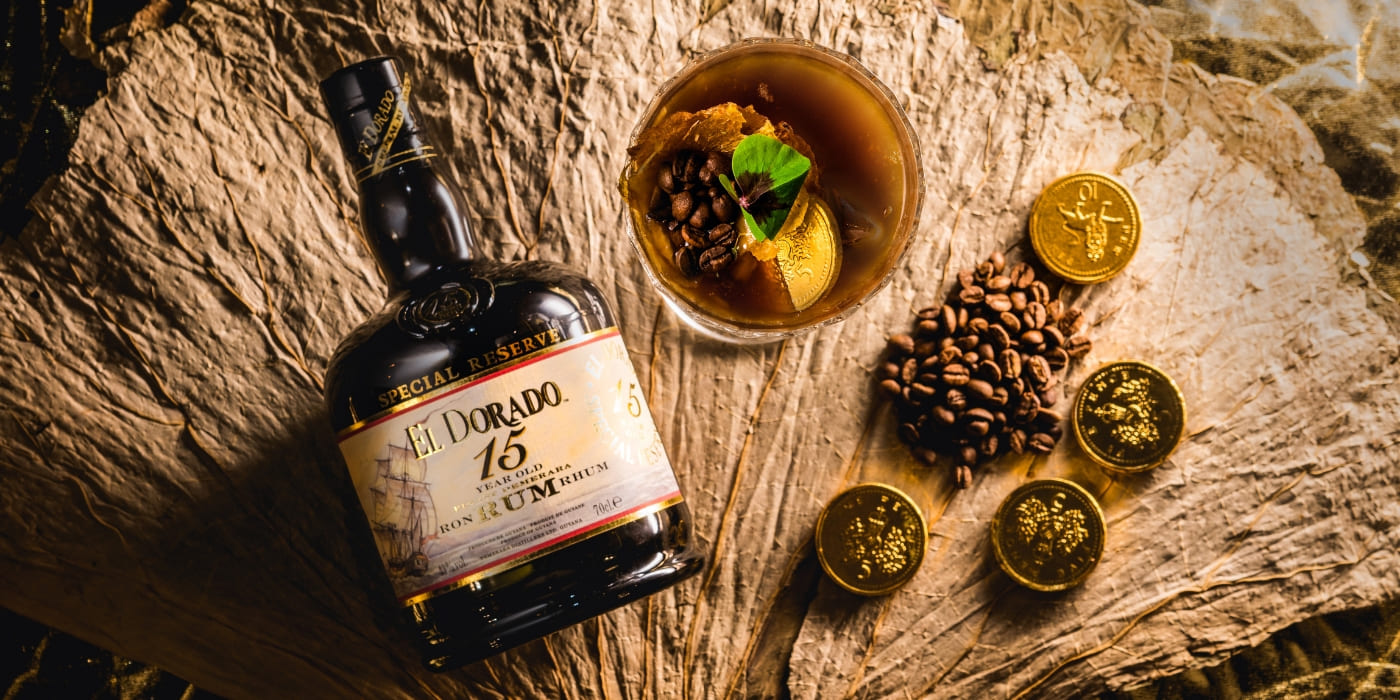
Abelha Organic Cachaca is owned by farm workers who all benefit from the global sales. El Dorado Rum uses the gas produced in the fermentation process to carbonate Pepsi in Guyana. All of our brands have robust socio-environmental policies which we are about to publish on our website over the next few months.
However, there is still so much more that we can all still do.
I don’t have Alexa and the speed of technology does make me shudder – but, needless to say, we do obtain a lot of information through a screen or some sort of device. In an industry that affects our sense of taste, surely direct experience, interaction and knowledge from experts will triumph.
It really has been the highlight of my career and a bit of a shock to be honest. It was awarded for high impact work in the industry. I began my business on my own with no investment and just built it up brick by brick. I’ve made many mistakes along the way but learned a lot of lessons. It was very much at the start of a craft revolution and quite a brave thing to do considering the highly unstable financial times. Being a female in a male dominated industry may have helped me to stand out too. I just want to encourage my team and my peers to reach for the stars, try their best, but most importantly enjoy the journey along the way.
 The article is contributed by Alistair Morrell a Wine Inspector, wine industry consultant, journalist and, commentator. Over 30 years as a wine business professional, Alistair shares his global knowledge, network, and experience of growers, importers, distributors and buyers.
The article is contributed by Alistair Morrell a Wine Inspector, wine industry consultant, journalist and, commentator. Over 30 years as a wine business professional, Alistair shares his global knowledge, network, and experience of growers, importers, distributors and buyers.
Show your spirits where it matters. Get your products tasted by top bartenders, buyers and experts at the London Competitions — enter now.